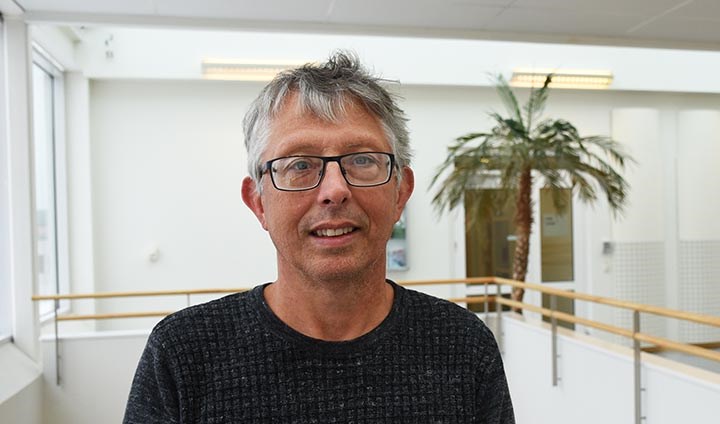Mats Deutschmann - new professor 2017

Mats Deutschmann is professor of English. His research focuses mainly on language, power and identity, topics coloured by his upbringing in different cultural and linguistic contexts. He is currently working on two projects that examine language and stereotypes.
Facts:
- 1964 Born in Stockholm
- 2003 Obtained his PhD with his thesis Apologising in British English
- 2009 Docent at Mid Sweden University
- 2015 Adjunct professor at University of Seychelles
- 2016 Professor of English at Örebro University
The starting point for Mats Deutschmann’s research is that language is an essential factor when we form an opinion about each other. It also concerns that we adapt our language based on underlying norms and preconceived social stereotypes when we interact with others.
“People’s pronunciation, both in terms of dialect and accent, affects how we judge their intellect, social class and character traits. We are not only judged based on our use of language but also by others, but also do so ourselves, consciously or unconsciously,” declares Mats Deutschmann.
Focusing on an educational context, Mats Deutschmann believes it is important to realise how we contribute to shaping individuals through the way we interact with them linguistically. He emphasises that people should strive for a deeper insight into such mechanisms.
“A central aspect of my research is about discerning methods that raise awareness and shed light on how our prejudices affect us. These methods can be useful in all relationship-related vocational training, for example for teachers, those in health care, for police officers and business managers,” says Mats Deutschmann.
He is currently leading projects that develop and investigate the effect of models which provide students with an opportunity to grasp a fuller understanding of identity-related aspects of language by using digital experiential-pedagogical approaches. Digital media gives researchers tools to manipulate voice and appearance and to create “new” virtual identities.
“In this way, we can manipulate identity attributes in digital media so that you can, for example, pretend to be of the opposite sex. With these methods, we give students personal experiences of how others experience one’s identity in terms of gender, age, appearance, and skin colour, and how it affects the way we are treated and judged,” explains Mats Deutschmann.
Mats Deutschmann grew up in Seychelles, a small archipelago in the Indian Ocean off the east coast of Africa. He went to a small village school and learned Seselwa, the local creole language with very low status. At that time, Seychelles was still an English colony.
“Creole was banned in schools, even though it was the mother tongue of 98 per cent of the population. Although times have changed, teaching in large parts of Africa is still conducted entirely in ancient colonial languages, especially English and French.”
These systems affect students’ ability to grasp learning and control the content of curricula, often based on English or French national curriculum. The result is that the local identity in language and culture is devalued. Those wanting to survive in the system must take on a new identity, both linguistically and culturally.
“Rarely are questions of language, identity and power as clear as in these contexts.”
Together with two doctoral students from Seychelles, he is currently working on these issues.
“We also want to develop models for how local languages can play a more prominent role in African schools, where these languages can function alongside English.”
